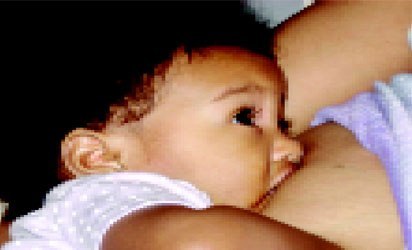
When a woman gives birth before attaining the age of 18, her economic and financial options are more limited throughout her lifetime. This strong and consistent lifelong negative association between giving birth before age 18 and a woman’s economic empowerment are findings by the Population Council and with Women Deliver.
The research, previewed during the Women Deliver 2019 Conference, held in Vancouver, British Columbia, points to the critical need to strengthen sexual and reproductive health and rights and expand economic opportunities for girls and women throughout their lives.
The preview was in line with the spirit of the Women Deliver 2019 Conference that focused on Power, Progress, Change, exploring association between having a child before 18 and economic opportunity.
The findings have implications for both the Individual’s Power (girls’ and women’s individual power, self-esteem and agency) and Structural Power (the systems, barriers, and opportunities for progress in power relations, including political, economic, and social structures).
The evidence paints a picture of the difficult and important decisions young mothers may face. Young mothers may be compelled to work out of necessity in jobs that may not promote their economic empowerment—a reality that can extend throughout the rest of their reproductive lives.
“The ability to earn and control cash represents more than just earnings—it influences a woman’s ability to make strategic life choices,” said Dr Stephanie Psaki, Deputy Director of the Population Council’s Girl Centre.
“This is one of the first studies to show consistently across so many countries and settings that having a child early can impact future earning potential.”
Drawing from nationally representative Demographic and Health Survey (DHS) data in 43 low—and middle-income countries, representing more than 600 million women, the analysis found that childbearing before age 18 is widespread. Despite global declines in the rates of adolescent childbearing in the last 25 years, childbearing is common in many low-and-middle-income countries, particularly in Sub-Saharan Africa where in nearly a dozen countries at least 30 percent of women have a child before age 18.
Women who have a child before age 18 are less likely to earn cash for their work throughout their lives. While women (ages 20–24) who have a child before age 18 are more likely to be employed in the short term; however, they are less likely to earn cash in the short-term and throughout their reproductive lives.
In many countries, women do not have control over their own earnings.
In the majority of countries studied, most women work; however, whether they are paid for their work or not varies widely, as does their ability to control their earnings. In Nigeria, according to UNICEF, 44 percent of girls are married before their 18th birthday, and 18 percent are married before their 15th birthday. UNICEF also says Nigeria has the third highest absolute number of child brides in the world – 3.54 million—and the 11th highest prevalence rate of child marriage globally.
Child marriage is most common in the North West and North East of Nigeria, where 68 percent and 57 percent of women aged 20-49 respectively were married before their 18th birthday. Child marriage is particularly common among Nigeria’s poorest, rural households and northern ethnic groups.
Child marriage is driven by gender inequality and the belief that girls are somehow inferior to boys. In Nigeria, 73 percent of Nigerian women with no formal education were married.
Some girls are married off by their parents to enhance political and social alliances, or married to men with rich families or business partners and to improve their economic status. Some Nigerian men reportedly prefer to marry girls.
A 2017-World Bank study estimates that child marriage costs Nigeria $7.6 billion in lost earnings and productivity every year.
According to Katja Iversen, President/CEO of Women Deliver, “In order to move the needle on gender equality, women need to be able to control their own fertility and their own earnings. We need societal investment in access to modern contraception, safe abortion, and comprehensive sexuality education, as well as in expanding economic opportunities for all girls and women.”
The analysis used the newest available DHS data (2012–2018) from 43 countries and included all women ages 20–49, allowing for nationally representative findings that are comparable across countries and over time. Few studies have considered the short- and long-term effects that a birth before age 18 have on women’s earning potential.
“The study confirms that early life events can shape the trajectory of a young woman’s life,” said Julia Bunting, OBE, President, Population Council.
“Policymakers need to invest in better understanding the trade-offs girls and women face and prioritize actions that will ensure girls and women have a full range of life options.”
Women Deliver is a leading global advocate that champions gender equality and the health and rights of girls and women. The Population Council confronts critical health and development issues—from stopping the spread of HIV to improving reproductive health and ensuring that young people lead full and productive lives.
Governments, policymakers, civil society, and donors were urged to develop policies and programmes to open up a range of employment opportunities that are economically empowering for girls and women, including those that are compatible with motherhood such as social protection systems (for example, parental leave policies, old-age pensions, flexible working hours, child allowances) and recognizing and valuing unpaid care work.
They should also improve the provision of, and access to, high-quality, youth-friendly sexual and reproductive health service and information, including voluntary, modern contraception and safe abortion, before, during, and after girls and women have begun having children.
They should also commit to collecting nationally representative gender-and age-disaggregated data and using evidence to inform policies and practices.
END

Be the first to comment